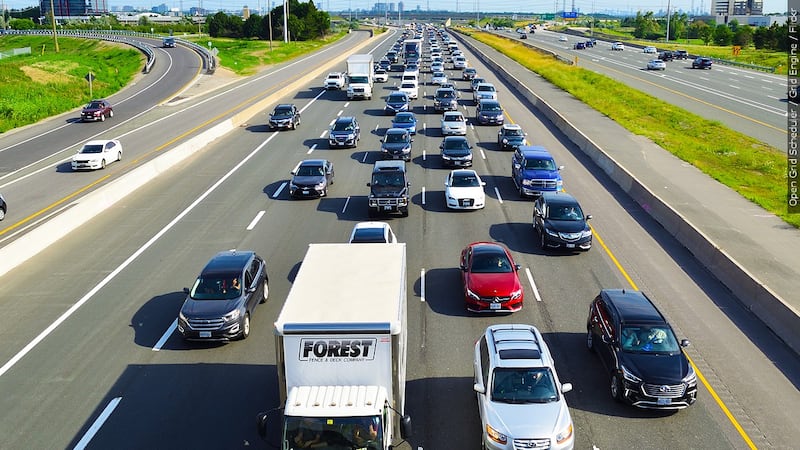Downtown stadium debate continues at Jackson County meeting
KANSAS CITY, Mo. (KCTV) - The Jackson County Legislature’s meeting room was packed with people Monday for a hearing on the Royals’ hopes of building a new stadium in the Crossroads neighborhood.
The team recently announced its planned location for a downtown ballpark district. It would extend southward from the south edge of I-670/Truman Road to 17th Street.
It would take up that space from Grand Blvd. to Locust Street. On April 2, Jackson County voters will decide whether to a 40-year extension of a 3/8 cent sales tax to partially fund improvements at Arrowhead and the construction of a new Royals stadium complex downtown.
The current tax, which expires in 2031, was for renovations and upkeep. The legislature’s chair and co-chair, Jeanie Lauer and Megan Marshall, hosted the public hearing.
They instructed that comments should focus specifically on concerns or benefits to the selected site, not on the taxing mechanism to fund the project.
A big chunk of what would be demolished is the mainly vacant glass building that once housed the Kansas City Star printing press. But there are also thriving smaller businesses that would have to go. Some have establishments in the demolition zone.
Others are within a block of the area. They were nearly all opposed to the project.
“This is likely going to put us out of business due to real and perceived access issues, parking and just game day traffic in general,” said the owner of a dance studio less than a block from the boundaries of the proposed ballpark village. Mean Mule Distilling Co. is half a block south.
Its owner, Jeff Evans called out the Royals for their sports record. “I will not my own displacement from a team that sells its best players to the Yankees,” said Evans.
An East Crossroads resident who owns two businesses used strong language in her criticism of the plan.
“The fact that we are even here discussing this is disgusting,” she said. “It needs to go to the East Village where there is only one building that would need to be displaced. It’s a Commerce Bank.”
The East Village location, just west of the confluence of US-71/I-29, I-35 and I-670, was the first possible location announced by the team.
On their website, the Royals tout the Crossroads location as ideal for its proximity to the South Loop Project, another proposed public-private partnership proposal that aims to build a park covering a portion of I-670.
Should the South Loop Project come to fruition, it would directly abut the proposed ballpark district. Butch Rigby, who owns property in the area which he said he leases to 200 small businesses spoke in of the Crossroads location for the stadium.
He acknowledged tenant concerns regarding parking and safety, then said he trusts Royals owner John Sherman to fairly compensate the business owners who’d need to relocate.
“I believe he goes down there with the best of intentions,” Rigby said, “and I think he is keenly aware that it’s not a good thing to have chain restaurants, but rather to have small local business.”
Unsurprisingly, unions in the construction trades also spoke in favor.
“I’m old enough to when downtown was abandoned before the Power and Light District came, before the arena came,” said Pat “Duke” Dujakovich, president of the Greater Kansas City AFL-CIO. “And I look at it now and I see how it’s flourished.”
“We have a once-in-a-lifetime opportunity to influence the economic prosperity for this region for years to come,” said Rocky Kloth, regional director of the Mid-America Carpenters Regional Council.
They spoke more generally about the benefit of a downtown stadium rather than about the exact location selected. Two people who live nearby also expressed concern, specifically about parking, traffic and safety amid crowds.
Copyright 2024 KCTV. All rights reserved.












